Description
ABSTRACT
Admiralty Action in Rem : The Value of Security to be Furnished for the Release of an Arrested Vessel in Nigerian Admiralty Law
Dr. Chukwuechefu Ukattah* & Maryam Oyebode**
Action in rem is undoubtedly the most unique and attractive concept of admiralty law that helps ensure that Claimants obtain a measure of pre-judgment security for their claims. The attractiveness of an action in rem is premised on the ability of a Claimant to arrest the vessel against whom he has a claim until sufficient security for her bail is provided by her owners. Nigerian jurisprudence on the arrest and release of a vessel in an action in rem was hugely influenced by English admiralty law. Based on this ‘English influence’, Nigerian courts, in recent cases, in determining the value of security to be furnished for the release of an arrested vessel in an action in rem have adopted the principle of law espoused by Brandon J in The Moschanthy. This article attempts to show that these recent decisions, particularly the Court of Appeal decisions, were reached per incuriam as the Court failed to follow earlier decisions of the Supreme Court on the subject. Further, this article attempts to show that such decisions of the Court of Appeal are contrary to the clear provisions of the Admiralty Jurisdiction Procedure Rules 2011 (‘AJPR 2011’) and are also not in tandem with the established principles on the subject in most jurisdictions globally. This article underscores the need for our courts to follow the clear provisions of the AJPR and previous decisions of the Supreme Court on the subject.
INTRODUCTION
An action in rem is the very essence of admiralty actions globally as it is the unique feature1 of admiralty that makes it attractive to litigants and underlies the sui generis nature of admiralty actions. Its utility over the years has ensured the continued usefulness of admiralty actions to debtors and claimants alike in ensuring that litigants, at least, obtain a measure of satisfaction2 for their claims against an errant ship (and ultimately her owners). Perhaps, no other concept in action in rem ’empowers’ a litigant more than the concept of an arrest of an errant ship until security is furnished by the owners of the vessel to secure her release or the claim is settled by her owners.
Pertinently, the concept of providing security for the release of an arrested vessel needs to be examined to understand the jurisprudence underpinning the concept in addition to the factors that generally led to the evolution of the concept. An understanding of the jurisprudence underpinning the concept will provide the proper basis for our examination of Nigerian admiralty law on the subject as Nigerian admiralty law was hugely influenced by English admiralty law.3</sub
* Ph.D. (University of Cape Town), BL. SeniorAssociate, Olaniwun Ajayi LP, Lagos.
* LL.M (King’s College, London), BL. Associate, Olaniwun Ajayi, LP, Lagos.
- F. Wiswall, The Development of Admiralty Jurisdiction and Practice Since 1800 (1970) 155; Gregory Nell S. C., ‘The Arrest of Ships – Some Legal Issues’ 39 accessed 10 November 2016.
- The value of security provided as prejudgment security may be less than the amount claimed, in which case the Plaintiff will have to claim the remaining part of his claim by instituting an action in personam. See para 1.7 infra, for details on Nigerian statutory provision on the value of security to be furnished for the release of an arrested property in an action in rem.
- See The Da Qing Shan v Assan Oil Mills Ltd (The Da Qing Shan No 1) (1991) 4 NSC 151 at 155.

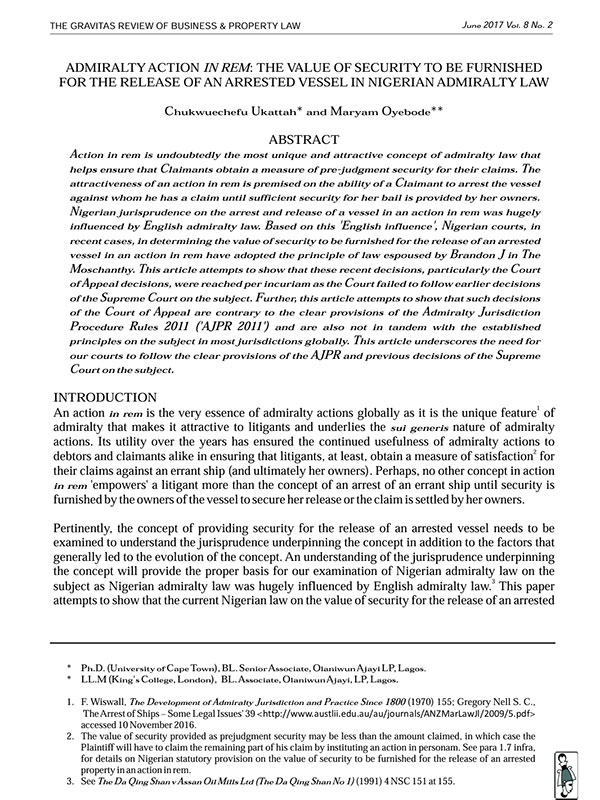
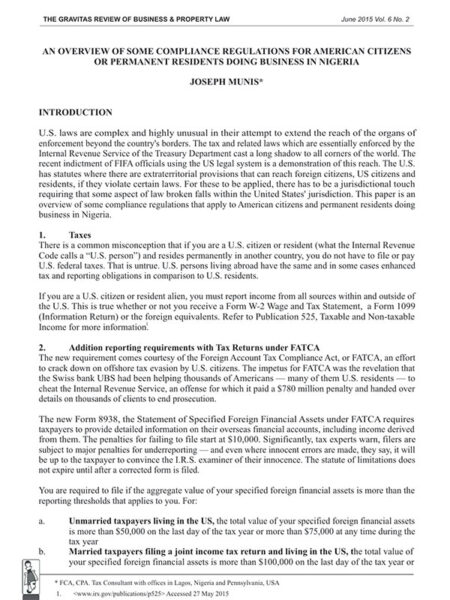
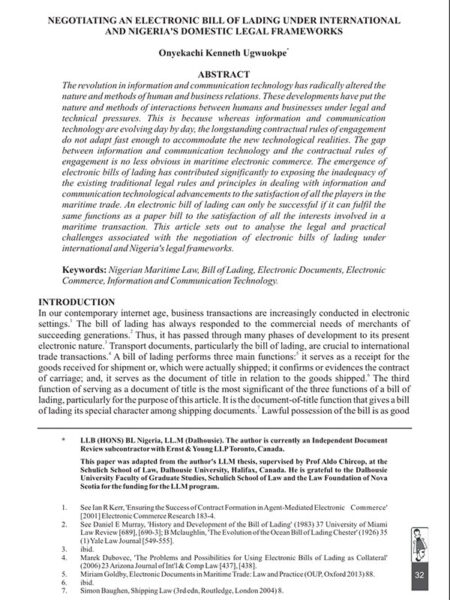
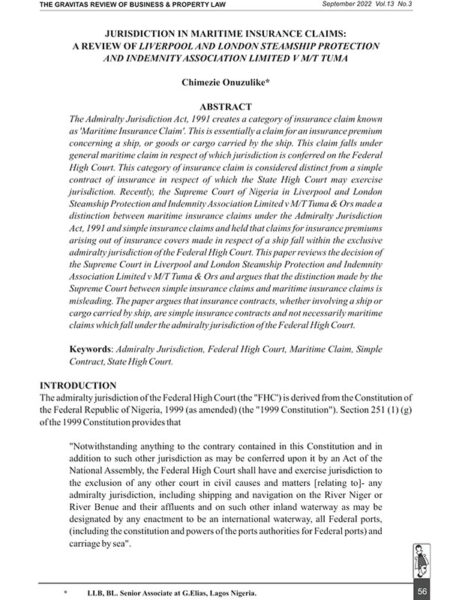
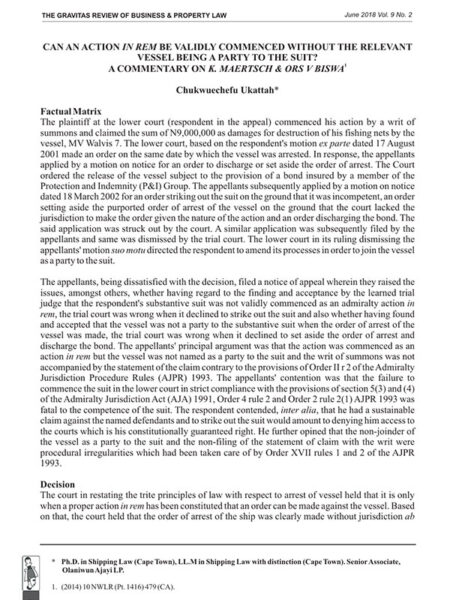


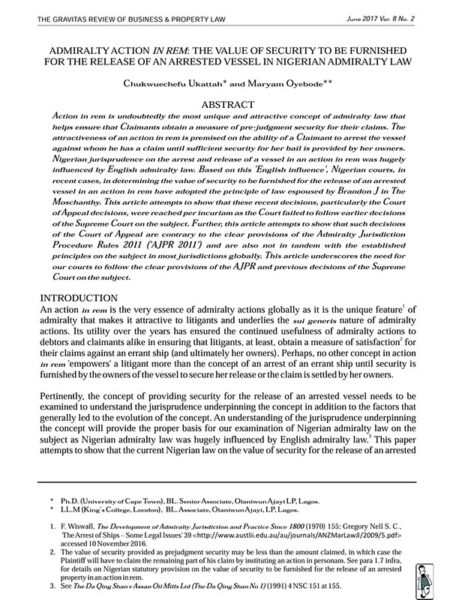
Reviews
There are no reviews yet.